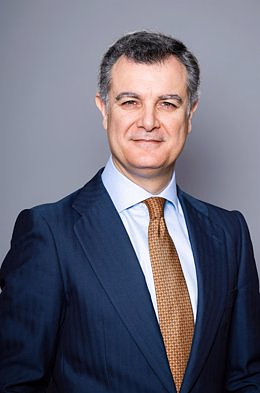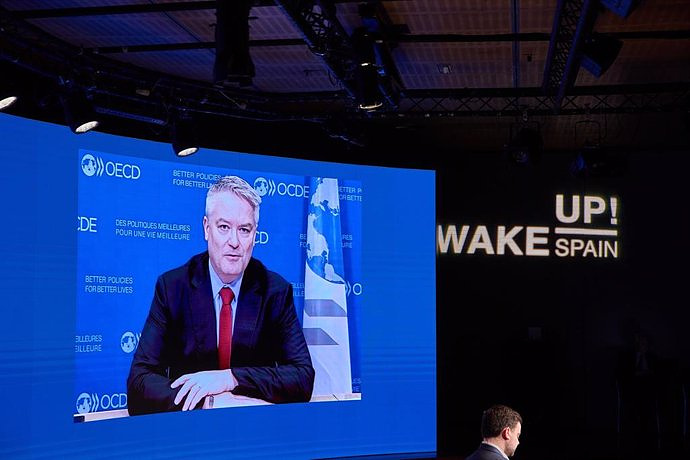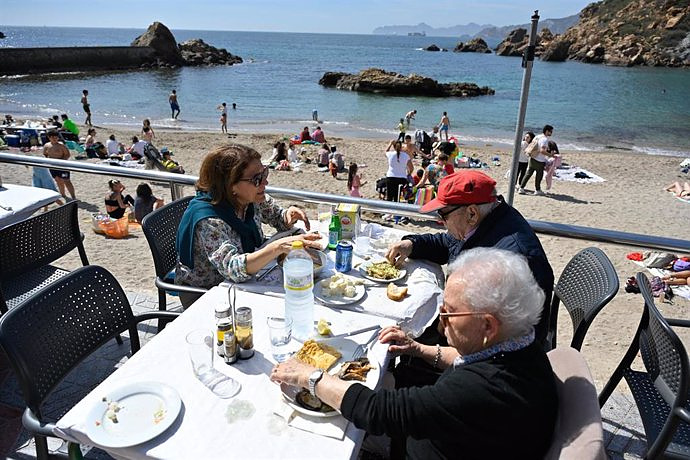Anticipates more rate hikes and rejects a recession scenario in the EU, although there will be a "slowdown"
ARROYO DE LA ENCOMIENDA (VALLADOLID), Sep. 12 (EUROPA PRESS) -
The Vice President of the European Central Bank (ECB), Luis de Guindos, has recognized that the uncertainty of the economy in the EU as a whole is "enormous", a situation in which he considers that it would be a mistake to apply an expansionary fiscal policy, for He has asked that taxation help reduce the effect of inflation on the most vulnerable groups.
Guindos has advanced, also that there will be more rate hikes in the euro zone after already reaching 1.25% after the last increase of 0.75%.
De Guindos participated this Monday in the forum 'Meetings in Castilla y León' organized by the newspaper El Norte de Castilla and CajaMar, where he analyzed the current economic situation in the euro zone and insisted on the forecasts and actions adopted by the Bank Central Europe, from where one does not work in a scenario of economic recession, although one of "slowdown".
The vice president of the ECB has insisted that the EU is experiencing a situation of "uncertainty" and has advanced that the central scenario in which the entity works does not speak of a recession. "We are talking about very low growth in the first quarter (of 2023) but without a recession," De Guindos has defended, who has not hidden that a very negative "alternative" scenario has also been developed that would start with a "total cut" of supplies from Russia and that would lead to a negative growth rate of -0.9%.
Despite this reflection, De Guindos has outlined that the central scenario in which the EU works is a growth of 0.9% by 2023, a rate that would be "somewhat below" 2% in 2024.
For the vice president of the ECB, the situation will be one of slowdown in the euro zone, however he has avoided being catastrophic and has assured that the European economy will grow again in the coming years.
In his speech before this Forum, the Vice President of the BCE insisted that the current situation makes it necessary not to make mistakes and, in his opinion, one of them would be to apply an "expansive" fiscal policy, for which he has defended that the tax area seek to "relieve" families and companies from the increase in inflation that, in many cases, forces them to endure a "very difficult" situation.
For De Guindos, the current fiscal policy should be more selective and temporary aimed at reducing inflation in vulnerable groups of society. "Inflation is not felt by everyone in the same way, an expansive fiscal policy has no margin and would conflict with monetary policy", she has indicated.
The second of the "errors" pointed out by De Guindos would be to promote the so-called "second round effects", which leads to "spirals" of salary and price increases that would mean a "loss of competitiveness".
In this sense, the vice-president of the ECB has indicated that the effects of the measures promoted by the body with the rise in rates will have their effects in a period of 18 or 24 months, for which he has advanced that there will be new rises in rates until that inflation is around 2%.
Regarding how much these guys could raise, De Guindos has been cautious and has explained that it is something that must be evaluated "game by game".
Lastly, the vice-president of the ECB has warned the banking sector of the problems that adopting "short-term" measures can cause and has recommended that they look to the future in the face of a "complex" moment for the EU economy in which there will be lower growth, a "high and persistent" inflation and the uncertainty of the war and its effects on the price of energy.

 Exploring Cardano: Inner Workings and Advantages of this Cryptocurrency
Exploring Cardano: Inner Workings and Advantages of this Cryptocurrency Seville.- Economy.- Innova.- STSA inaugurates its new painting and sealing hangar in San Pablo, for 18 million
Seville.- Economy.- Innova.- STSA inaugurates its new painting and sealing hangar in San Pablo, for 18 million Innova.- More than 300 volunteers join the Andalucía Compromiso Digital network in one month to facilitate access to ICT
Innova.- More than 300 volunteers join the Andalucía Compromiso Digital network in one month to facilitate access to ICT Innova.-AMP.- Ayesa acquires 51% of Sadiel, which will create new technological engineering products and expand markets
Innova.-AMP.- Ayesa acquires 51% of Sadiel, which will create new technological engineering products and expand markets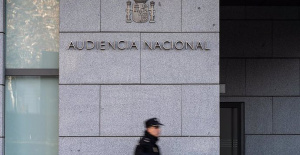 The Prosecutor's Office requests that the AN investigate the detainee for terrorism for damaging an ax in a McDonalds in Badalona
The Prosecutor's Office requests that the AN investigate the detainee for terrorism for damaging an ax in a McDonalds in Badalona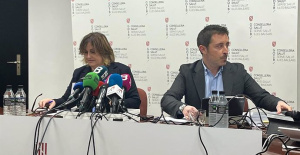 Balearic PSOE denounces the director of IbSalut for prevarication for renouncing the mask claim file
Balearic PSOE denounces the director of IbSalut for prevarication for renouncing the mask claim file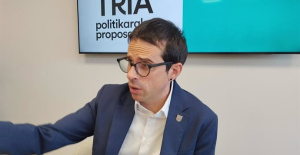 Otxandiano reproaches that PSOE "has lent itself" to taking out ETA in the campaign, like the extreme right against Sánchez
Otxandiano reproaches that PSOE "has lent itself" to taking out ETA in the campaign, like the extreme right against Sánchez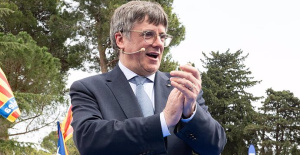 Puigdemont claims to have a "well grasp" of the State and asks to "be respected" to obtain more transfers
Puigdemont claims to have a "well grasp" of the State and asks to "be respected" to obtain more transfers How Blockchain in being used to shape the future
How Blockchain in being used to shape the future Not just BTC and ETH: Here Are Some More Interesting Coins Worth Focusing on
Not just BTC and ETH: Here Are Some More Interesting Coins Worth Focusing on Valencia displays its "innovative and technological potential" at the Emerge Americas event in Miami
Valencia displays its "innovative and technological potential" at the Emerge Americas event in Miami The CSIC incorporates the challenges of robotics, nanotechnology and AI in the new strategic plan for biomedicine
The CSIC incorporates the challenges of robotics, nanotechnology and AI in the new strategic plan for biomedicine Innovation allocates 9.1 million to train 74,000 people and guarantee digital inclusion
Innovation allocates 9.1 million to train 74,000 people and guarantee digital inclusion LIFE SPOT manages to develop new green treatments that eliminate groundwater contamination
LIFE SPOT manages to develop new green treatments that eliminate groundwater contamination A million people demonstrate in France against Macron's pension reform
A million people demonstrate in France against Macron's pension reform Russia launches several missiles against "critical infrastructure" in the city of Zaporizhia
Russia launches several missiles against "critical infrastructure" in the city of Zaporizhia A "procession" remembers the dead of the Calabria shipwreck as bodies continue to wash up on the shore
A "procession" remembers the dead of the Calabria shipwreck as bodies continue to wash up on the shore Prison sentences handed down for three prominent Hong Kong pro-democracy activists
Prison sentences handed down for three prominent Hong Kong pro-democracy activists ETH continues to leave trading platforms, Ethereum balance on exchanges lowest in 3 years
ETH continues to leave trading platforms, Ethereum balance on exchanges lowest in 3 years Investors invest $450 million in Consensys, Ethereum incubator now valued at $7 billion
Investors invest $450 million in Consensys, Ethereum incubator now valued at $7 billion Alchemy Integrates Ethereum L2 Product Starknet to Enhance Web3 Scalability at a Price 100x Lower Than L1 Fees
Alchemy Integrates Ethereum L2 Product Starknet to Enhance Web3 Scalability at a Price 100x Lower Than L1 Fees Mining Report: Bitcoin's Electricity Consumption Declines by 25% in Q1 2022
Mining Report: Bitcoin's Electricity Consumption Declines by 25% in Q1 2022 Oil-to-Bitcoin Mining Firm Crusoe Energy Systems Raised $505 Million
Oil-to-Bitcoin Mining Firm Crusoe Energy Systems Raised $505 Million Microbt reveals the latest Bitcoin mining rigs -- Machines produce up to 126 TH/s with custom 5nm chip design
Microbt reveals the latest Bitcoin mining rigs -- Machines produce up to 126 TH/s with custom 5nm chip design Bitcoin's Mining Difficulty Hits a Lifetime High, With More Than 90% of BTC Supply Issued
Bitcoin's Mining Difficulty Hits a Lifetime High, With More Than 90% of BTC Supply Issued The Biggest Movers are Near, EOS, and RUNE during Friday's Selloff
The Biggest Movers are Near, EOS, and RUNE during Friday's Selloff Global Markets Spooked by a Hawkish Fed and Covid, Stocks and Crypto Gain After Musk Buys Twitter
Global Markets Spooked by a Hawkish Fed and Covid, Stocks and Crypto Gain After Musk Buys Twitter Bitso to offset carbon emissions from the Trading Platform's ERC20, ETH, and BTC Transactions
Bitso to offset carbon emissions from the Trading Platform's ERC20, ETH, and BTC Transactions Draftkings Announces 2022 College Hoops NFT Selection for March Madness
Draftkings Announces 2022 College Hoops NFT Selection for March Madness



